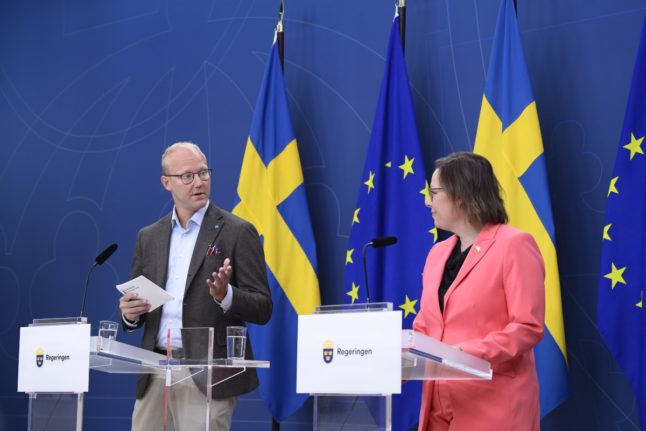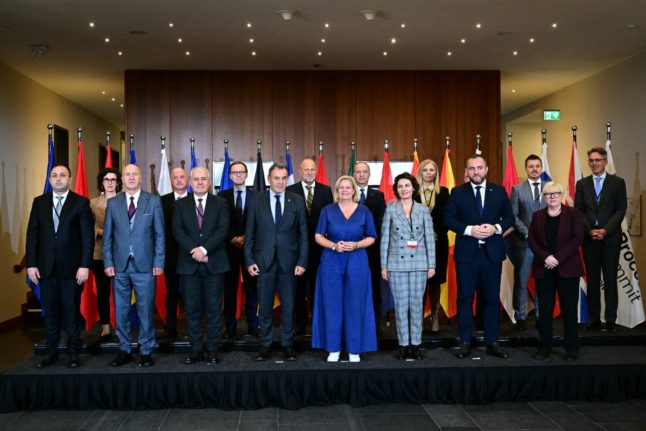Migration Minister Maria Malmer Stenergard confirmed in an interview broadcast on SVT on Sunday that the government intended to push ahead with its plans to “powerfully stimulate return migration,” even though a government inquiry into possible measures concluded that those favoured by the far-right Sweden Democrats were likely to be counterproductive.
“He said that he had not been able to come up with proposals which would ‘powerfully stimulate return migration’,” Malmer Stenergard acknowledged of the inquiry led by economist Joakim Ruist. “But we think it is still interesting to consider measures which can increase return migration anyway.”
“I think we can work with this more actively and support it not only with money but with other measures that can make people who haven’t found their feet in Sweden get a push to return to their home countries.”
READ ALSO: Swedish inquiry rejects idea of paying migrants to return
In the interview, Stenergard referred to a Somali-Swedish woman she had met who, she said, “longed to return to her roots”, but was worried about her children’s education and access to quality healthcare.
“In that case I think it’s interesting to take a look at Denmark, and there they give quite long-lasting support to children’s education which lasts for several years,” she said.
When it came to medical care, she added, Sweden could provide medical insurance to return migrants and also potentially money for medicines, further lessening fears about returning to their home countries.
In the same programme, Ruist defended his conclusions that there were no measures he could suggest which would lead to what his instructions had referred to as kraftigt ökad återvandring, or “significantly increased return migration”.
“With focus on the word ‘significantly’, I concluded that there is nothing being done anywhere that’s leading to ‘significantly increased return migration’,” he told SVT in his first interview since his conclusions were published last month.
Raising the payment to the Danish level of 350,000 kroner, would, he reiterated, lead to an increase in return migration of about 700 people a year, which would then, over 25 years, generate a small positive return to government finances of about 200 million kronor.
But he said that such a policy could also have unexpected negative effects that were likely to exceed those benefits.
“A likely consequence, I think, is that it would be damaging for integration,” he said. “That you’re singling out groups and saying ‘you are so unwelcome that we are ready to pay large amounts to get rid of you’, and then they lose motivation to integrate into Swedish society. It doesn’t need to be a terribly large number of people who are affected in that way before the effect is larger than that 200 million kronor.”
In the same programme, Ludvig Aspling, the migration spokesperson for the far-right Sweden Democrats, echoed Malmer Stenergard, saying that the government would increase the payment to those wishing to return from today’s 10,000 kroner up to “around the Danish level” of 350,000 kronor despite the inquiry’s conclusions.
“A significant increase in return migration is a Sweden Democrat election pledge, and the payment will be raised, whatever the conclusions of the inquiry chair,” he said. “We are expecting a big boost to this and it’s also included the Tidö Agreement with the government that the payment will be increased.”



 Please whitelist us to continue reading.
Please whitelist us to continue reading.
Member comments